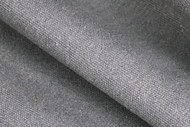Meet The Materials: Rewind® Fabric
Posted by House of Marley on Apr 15th 2022
House of Marley shares the same environmental mindset as Bob Marley himself—universal kindness to planet Earth. To stay in line with our mission, we use sustainable materials to craft the REWIND® upcycled fabric that we use in so many of our products.
You’ll find REWIND® fabric throughout our line, including everything from wraps on headphone and case housings to stash bags and watch bands. To make REWIND® fabric, we use reclaimed and recycled materials to lessen our water and carbon footprints. By using sustainable fabric, we’re able to give music lovers environmentally friendly products that look as good as they sound.
But what exactly is REWIND® fabric and what makes it sustainable? We’ll teach you about the materials used in REWIND® fabric and explain why it's better for the environment.
What is REWIND® Fabric Made of?
Our REWIND® fabric is constructed from a distinctive blend of 30% reclaimed organic cotton, 30% reclaimed hemp and 40% recycled polyethylene terephthalate (rPET). Here’s a closer look at the sustainable resources we use to make REWIND® Fabric.
Organic Cotton
To make our REWIND® Fabric, we start with organic cotton. Organic cotton is a sustainable resource that can be grown responsibly without harming the environment. Before we look at the specific advantages of using organic cotton, it helps to understand the negative drawbacks of farming inorganic cotton.
When growing inorganic cotton, farmers use excessive amounts of pesticides and herbicides that can contaminate water sources, cause soil erosion and increase air pollution. Considering over five billion pounds of pesticides are used worldwide each year, the potential long-term effects are concerning, to say the least.
Secondly, the amount of water it takes to grow inorganic cotton is extreme. In an article published by Florida State University about the water-hungry cotton industry, they say it takes 2,700 liters of water to make one cotton T-shirt. That’s enough water for one person to drink for 900 days!
But what does all this mean for communities that rely on cotton farming? Cotton farmers put their health at risk. Pesticides are linked to DNA damage, hair loss and chronic disorders in cotton farmers who expose themselves. And despite cotton’s moderate drought tolerance, growing it can lead to water supply shortages, especially in countries like India where water scarcity is an ongoing problem.
House of Marley uses organic cotton as a sustainable alternative. Organic cotton seeds aren’t treated with GMOs, nor do they require any harsh chemicals to grow. Additionally, organic cotton takes significantly less water to produce. According to researchers at Iowa State University, inorganic cotton production accounts for 69% of textile fiber's water footprint.
Recycled PET
Recycled polyethylene terephthalate, also known as rPET, is a type of plastic used in our REWIND® fabric. By using rPET in House of Marley products, we’re able to prevent excessive landfill waste from casting a shadow on the Earth.
PET is used in virtually everything, including household containers, electronics, clothing, automotive parts—and of course—the 2.5 million plastic bottles thrown annually in America. The list of drawbacks of tossing out PET reaches the shoreline, literally. According to findings shared by Boston College, 10 million tons of plastic enter the ocean every year.
rPET also conserves energy and lessens air pollution. Manufacturing regular PET takes a significant amount of energy and releases excessive pollutants, but a life-cycle assessment conducted by Utrecht University found that rPET saves up to 85% of non-renewable energy and lessens greenhouse gas emissions.
Reclaimed Hemp
Reclaimed hemp shares some of the same environmental benefits as organic cotton, such as chemical-free growing requirements and very low water usage. But in addition to these benefits, planting hemp has a cool combination of perks that’s hard to find in other crops—we call it a ‘booster shot for planet Earth.’
Farmers treat hemp like a natural multi-vitamin for the ground. Hemp doesn’t have any negative effects on soil fertility and can replenish vital soil nutrients just by growing it. For example, a team of researchers from Wisconsin University is measuring the soil-purifying effects of hemp to clean the environment and diversify its local farming ecosystem.
And with global warming and climate change becoming a bigger issue, it helps to have plants like hemp around. Hemp acts as a ‘carbon dioxide sponge’ that absorbs excess amounts lingering in the air that would otherwise contribute to greenhouse gas emissions. House of Marley uses similar materials, like bamboo, that have this same effect.
We also use hemp for its strength. Experts from Florida University claim, “[Hemp] is more durable than cotton or synthetic fibers, making it resilient and long-lasting.” Paired with other strong materials like bamboo, House of Marley can deliver durable products that last a lifetime, like our Get Together Bluetooth Speakers and Bag of Riddim Portable Speaker.
Experience the Marley Sound
With REWIND™ fabric n in our lineup, we’re proud to say that the House of Marley is aligned with its goal of helping the planet stay well. Now that you know a little more about our Earth-friendly mission, you can experience the Marley Sound! Check out our sustainable speakers, headphones and turntables for a premium listening experience.













